Insulation Tips
What Is The Best Insulation For Sheds?
Sheds are incredibly valuable structures. Whether it’s a 2000m2 commercial, industrial or farm shed, or smaller options like a man cave or liveable space conversion, sheds are such important parts of our businesses and home lives. The only problem, though, is that sheds can be pretty bare bones when it comes to insulation. Generally, they’re not insulated at all – and this can be a problem.
Whether your shed is the base of your business operations, a space to keep stock or valuable possessions away from fluctuating temperatures, or you’re just looking to reduce noise, you’ll need insulation. In this guide, we’ll take a closer look at the role and benefits of insulation in a shed, the different types available and how you can choose the best insulation for your needs.
What Is Shed Insulation?
Like all insulation, shed insulation is a material (usually either foam or foil) designed to prevent the transmission of heat or noise. This is particularly important because, generally speaking, sheds are uninsulated structures made of metal sheeting, plastic, or timber – all average insulators on their own. If your shed doesn’t include insulation (and you want to keep your tools out of the cold or stop the neighbours complaining about your drumming), you’ll need some post-shed installation insulation.
Different Types of Shed Insulation
There is no single best insulation for sheds. Before you pick your insulation, ask yourself a few questions:
- Is the insulation easy to install?
- How much space will it require?
- Is it effective for heat or sound (or both)?
- What’s my budget?
Now let’s take a look at your options:
Reflective Foil Insulation
Foil insulation is ideal for hot environments, reflecting radiant heat rather than absorbing it. Where heat is your main enemy (such as in the north of Australia), reflective foil insulation can be enough to get the job done on its own. Where the temperature dips in the winter (or if you need soundproofing), use foil insulation with a foam core. The foam core acts as a thermal break, preventing thermal bridging and providing great insulation for hot and cold conditions.
Examples of foam core styles include Kingspan Air-Cell Insulshed 50 Shed Insulation which is easy to install and works well on most budgets, and Trade Select by Ametalin, a heavy-duty option that’’s fibre-free and non-allergenic. We recommend both of these examples for garden, workshop and storage sheds. Another great option is Foilboard, which uses a polystyrene core. This is a versatile option that can easily be retrofitted to an existing shed, which is ideal if you want a DIY insulation option.
Regardless of which way you go, remember that reflective insulation generally benefits from an air gap of 2-4 cm between external cladding and the foil to achieve best performance. Reflective foil is only effective when an air gap is provided.
Bulk Insulation
As the name suggests, bulk insulation is generally thicker than reflective foil insulation, and includes materials like rockwool, glasswool, polystyrene and polyester. Many of these products – like Bradford Polymax and Knauf Earthwool – are rated for both thermal insulation, as well as acoustic insulation. Where foil works best reflecting heat, bulk insulation is effective at slowing down the transfer of heat and maintaining consistent temperatures, as well as keeping sound in and out. This makes many of these styles effective for use in recording studios, man caves, and shed conversions for office or living spaces.
Reflective and Bulk Insulation – Combination
In some cases, the best shed insulation for your needs might combine both reflective foil and bulk insulation.
Examples of this type of insulation include Knauf Earthwool Roofing Blanket with foil facing. This is particularly well-suited to use under metal roofs (as you’d find in a shed), helping to retain and repel heat while the foil facing controls condensation. Keep in mind that roofing blankets need to be installed before the metal roof is installed, so retrofitting these products isn’t usually an option.
Another option is rigid foam with a foil backing, like these panels by Pirmax. With its double-sided foil backing, this example is one of the most thermally-efficient options on the market. For a top-of-the-line, premium option, the Kingspan Kooltherm K12 has an extremely effective foam core that also benefits from low emissivity composite foil.
Top 10 Shed Insulation Products
Stuck for where to start with shed insulation products? In no particular order, here are 10 of our favorites:
1. Kingspan Air-Cell Insulshed Insulation
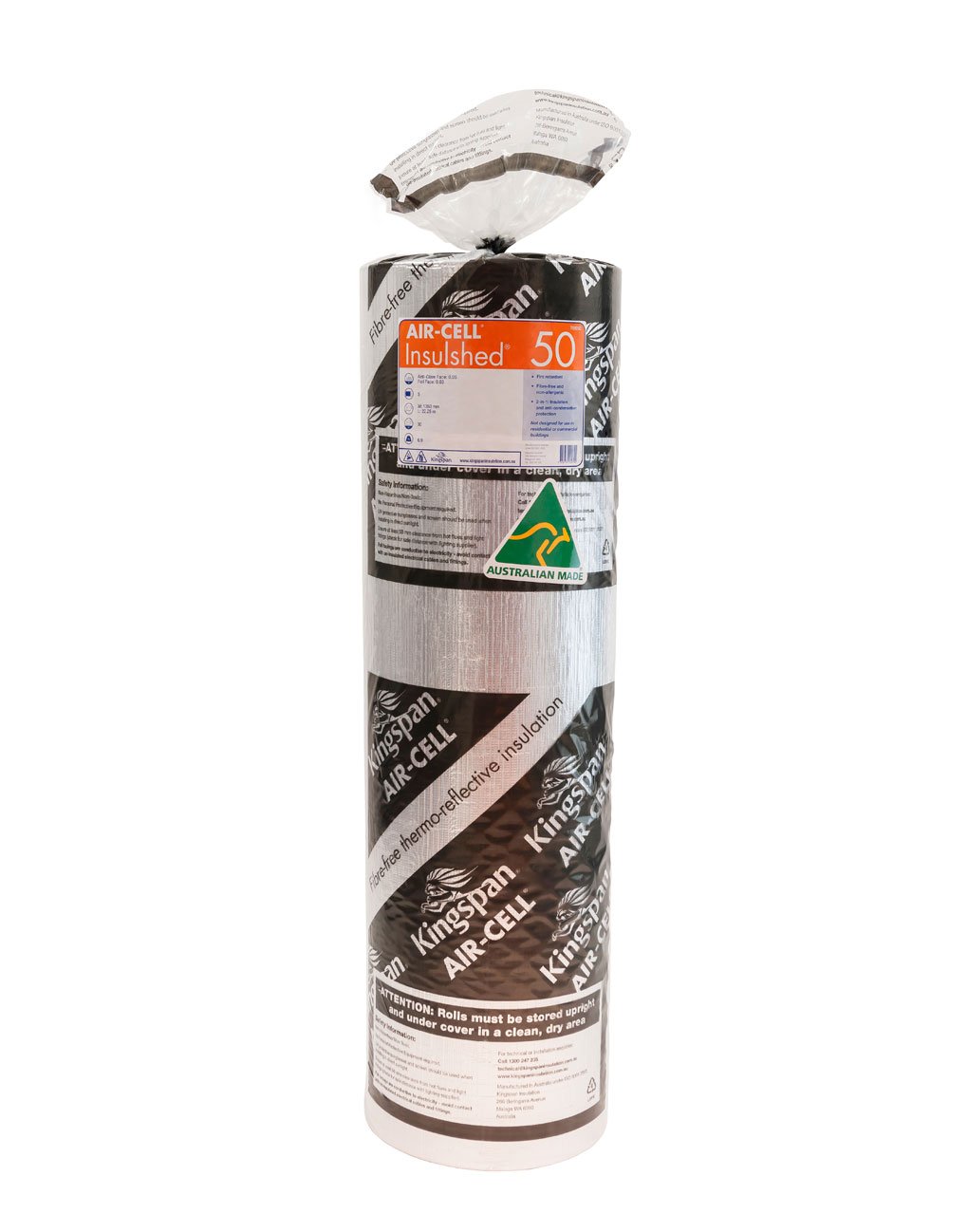
One of the most budget-friendly shed insulation options, Kingspan Air-Cell Insulshed uses closed foam sandwiched between reflective foil for year-round temperature control. A great alternative to traditional bulk insulation and specifically designed for all sheds, whether it’s a garden shed, storage or workshop.
2. Trade Select by Ametalin ThermalBrane 4 Foil Insulation
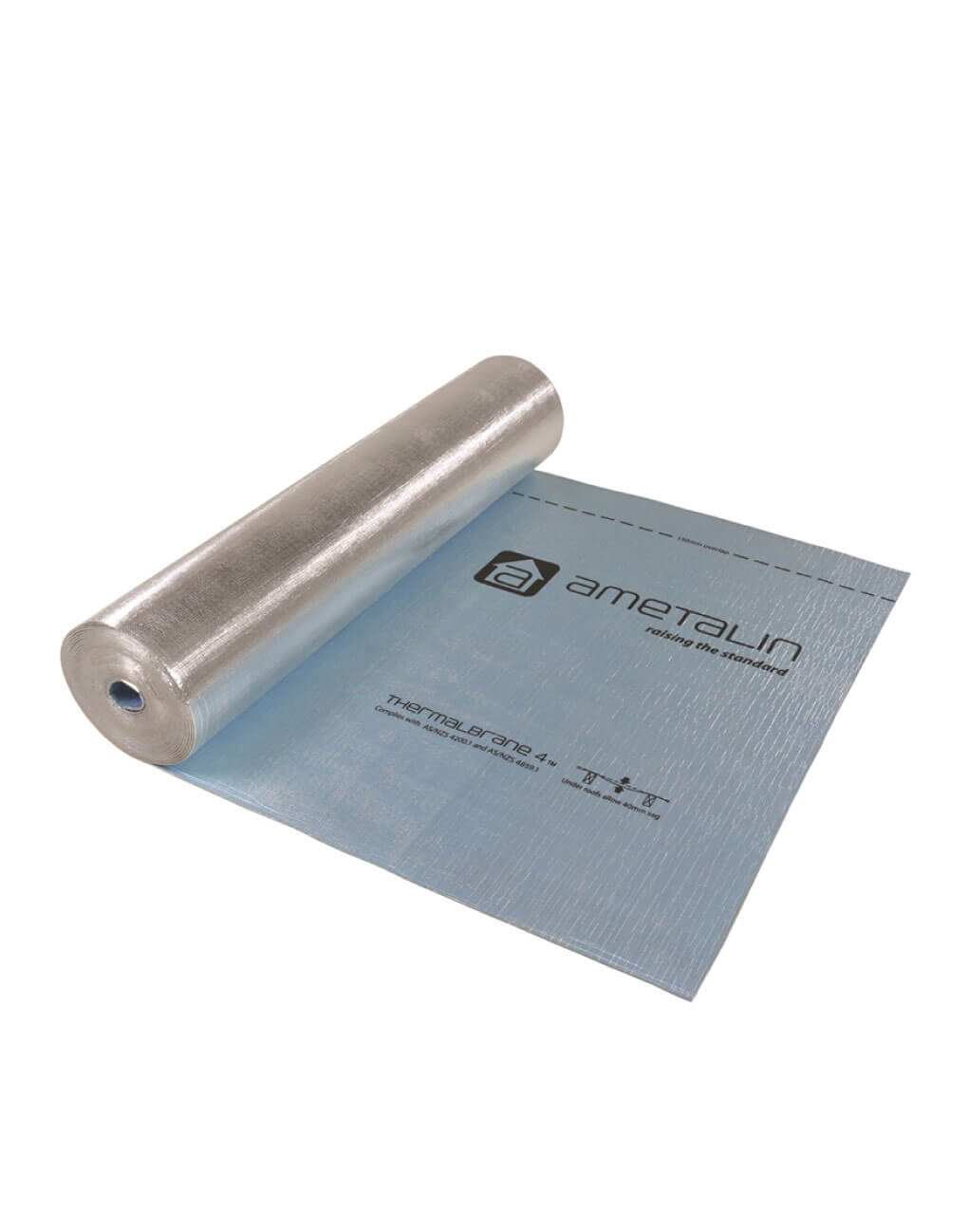
A cost-effective alternative to the Kingspan above (which is already easy on the budget), Trade Select is a fibre-free, non=allergenic insulation with excellent acoustic dampening properties and effective thermal insulation. This insulation uses high-density XPE foam between foil layers, making it a great option for garden, workshop and storage sheds whether you’re installing now or retrofitting later.
3. Kingspan Air-Cell Insulbreak 90 Insulation
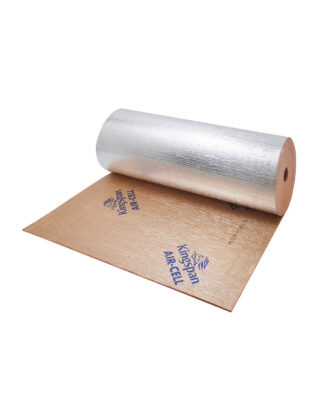
Another great Kingspan product, the Air-Cell Insulbreak 90 is designed specifically for steel-framed constructions like sheds. This insulation has a thermal break of 0.2, reducing thermal bridging and conductivity, plus it’s non-allergenic, fibre-free and unaffected by moisture. An ideal solution for more serious uses such as commercial, industrial and farm sheds.
4. Trade Select by Ametalin ThermalBreak 7 Foil Insulation
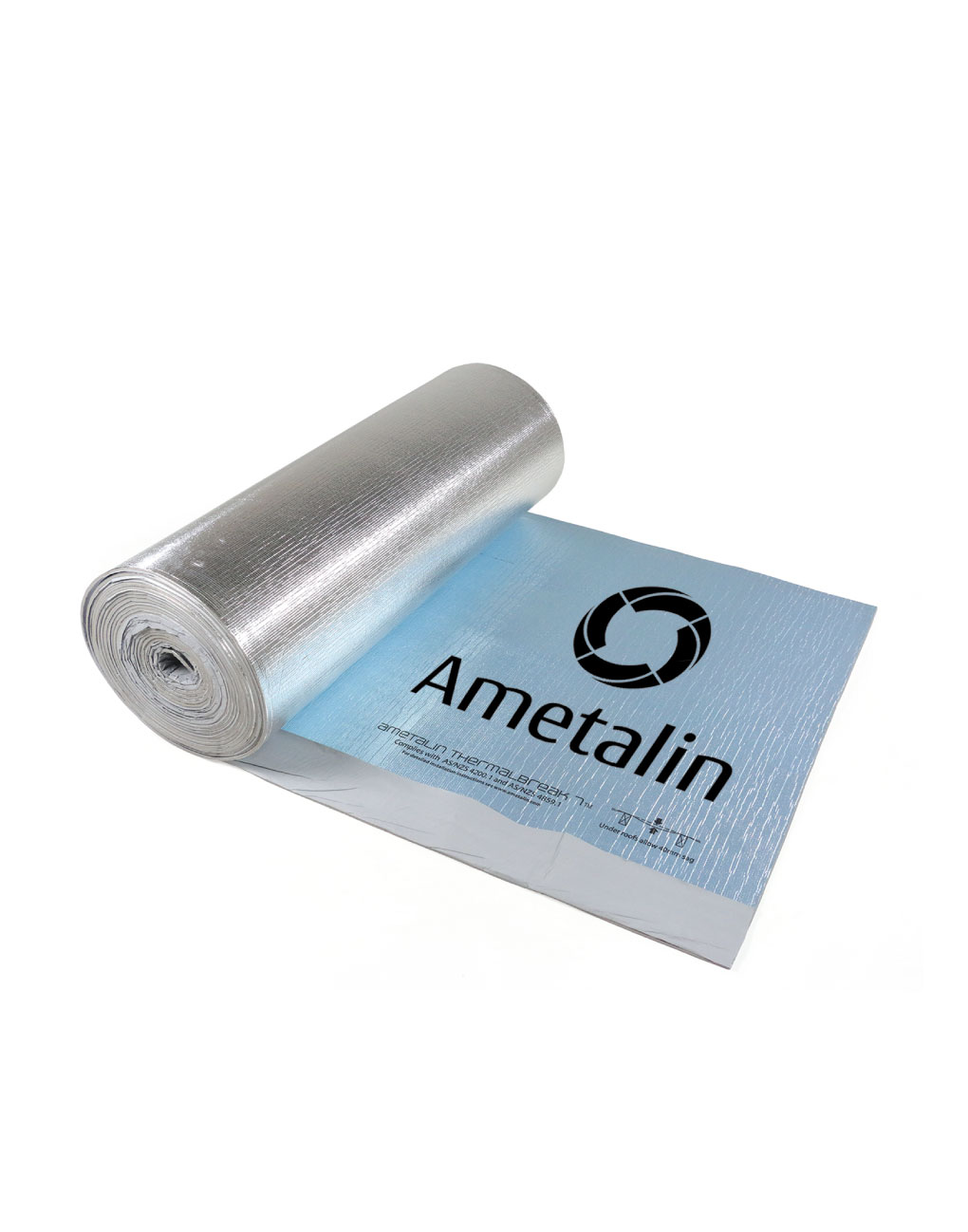
A serious insulation option that’s particularly well-suited to commercial builds. This insulation from Trade Select uses double-sided reflective foil with XPE foam and a Class 2 Vapour Barrier. Besides its excellent thermal properties, the Trade Select is also fire-resistant with a Group 1 Fire Classification that makes it suited to bushfire-prone areas. Although a popular and effective choice for commercial uses, this Trade Select insulation is also suited to residential purposes.
5. Foilboard Insulation Panels
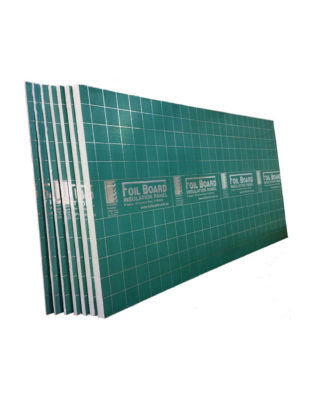
A cost-effective solution and particularly suited to retrofitting, which is great if you’re insulating an existing garden shed, workshop or storage option. This insulation uses fire retardant expanded polystyrene core and laminated aluminium foil. Foilboard is easy to install and accessible for DIY projects but it’s worth remembering that, as a non-permeable insulation, condensation should be considered. You’ll also need to ensure that appropriate air gaps are considered to achieve a sufficient R-value.
6. Knauf Earthwool Roof Insulation Blanket
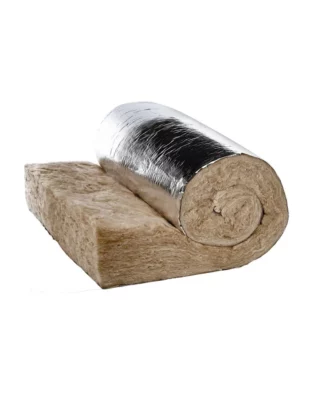
Designed specifically for metal roofs, this Knauf Earthwool product uses a combination of bulk and reflective insulation with long-lived polyweave foil facing. An excellent insulator against thermal conduction, Earthwool is also great for those looking for acoustic performance (ideal for noisy garden workshops or sheds used for accommodation, for example). When installing Knauf Earthwool Insulation Blanket, it must be installed before the metal roof.
7. Knauf Earthwool Insulation Batts
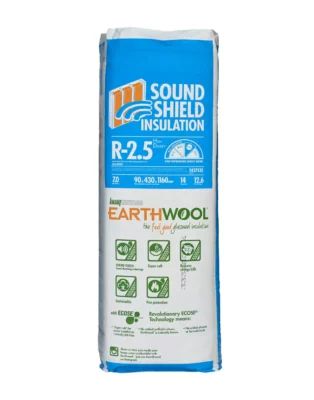
There are plenty of options here for anyone looking to take advantage of the great thermal and acoustic properties of Knauf Earthwool, such as in recording studios, living space conversions or workshops. Choose from a range of R values to suit your thermal needs as well as the acoustic properties of Knauf Sound Shield products like R2.5HD Earthwool SoundShield, R2.7HD Earthwool SoundShield (for use in walls) and R4.0HD Earthwool SoundShield (for ceilings). Earthwool should be used in conjunction with a vapour-permeable wall wrap like Bradford Enviroseal to prevent condensation. Also note that bulk insulation like Knauf Earthwool Insulation Batts requires internal lining, such as plywood, plasterboard or Colourbond.
8. Bradford Polymax Insulation
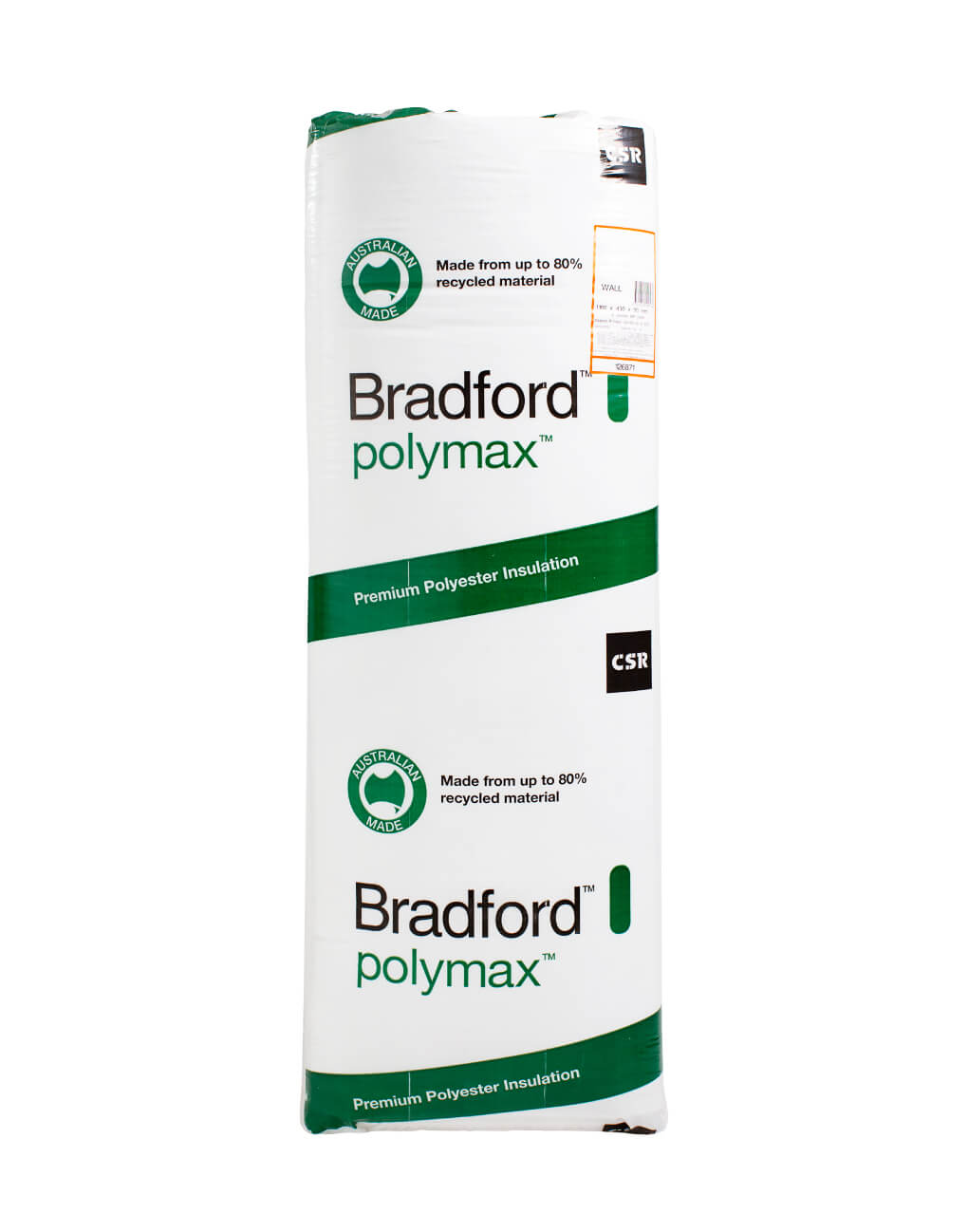
Bradford Polymax is a great alternative to glass wool insulation that’s ideal for liveable spaces, recording studios and man caves. While it tends to be more expensive, it doesn’t absorb moisture which makes it ideal for areas prone to dampness or condensation. Bradford Polymax is also 80% recycled plastics and is 100% recyclable making it a great, eco-friendly insulation. On the flipside, polyester is not available in the higher R-values like glasswool and it has slightly lower acoustic performance.
9. Kingspan Kooltherm K12 Insulation
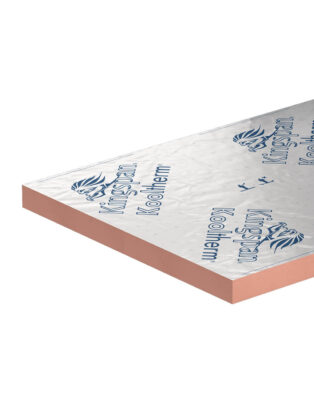
An excellent product at the premium end of the spectrum, the Kooltherm K12 is a super high-performance combination of reflective and bulk insulation. This insulation uses a fibre-free, closed cell insulation core, is water vapour-resistant, suitable for both timber and metal-framed constructions and CFC/ HCFC-free. While the costs are high per-square-metre, the Kingspan is highly-effective and suited to both new builds and retrofit operations.
10. PIRMAX ISO2 Panel with Silver Foil Facing
Using a PIR (Polyisocyanurate) rigid thermal panel makes the Pirmax PIR ISO2 perfect for a wide range of insulation applications. Ideal for those looking for high thermal values with minimal cavities, long-lived insulation and the peace of mind of a Group 2 BCA/NCC fire classification. A great, cost-effective alternative to the Kingspan Kooltherm K12 Insulation and ideal for many of the same applications, including farm sheds, workshops, commercial operations and liveable conversions.
How to Choose the Best Insulation for Your Shed
There are plenty of options for shed insulation. When you’re considering the type that you want to install, there are a few important points to think about:
- Application: Where will you install your insulation? Roofs and walls will require different insulation products, for example. You’ll also need to take timing into consideration, as some products can be retrofitted but others, such as roofing blanket, must be installed during the building process
- Goal: What are you trying to achieve? If you’re looking to keep sound in and out because you’re building a recording studio in the shed, reflective foil insulation won’t be right. On the other hand, if you’re only looking to keep heat out, reflective foil can be a good choice.
- Space: Bulk insulation, by its nature, takes up more space than reflective foil. If you’re retrofitting insulation, you might not have the space for some styles. Consider your options before you commit to a type of insulation.
- Budget: Some types of insulation are rated extremely highly for thermal and acoustic performance, but these might also be beyond your price range. Particularly if you’re building a new shed cheaply, you’ll want to find a type of insulation that fits your budget.
Installing Insulation in Your Shed
While you can always call the professionals, in many cases it’s possible to keep costs down by installing insulation yourself. If this sounds like you, here are a few tips to get you started:
- Safety first: Your health is more important than any DIY project. Before insulating a shed, you’ll need some protective equipment, including a pair of gloves, goggles, good quality work boots and a face mask.
- Pre-work: Save time by pre-cutting your insulation panels.
- Remember the details: If you’re using bulk insulation, it’s important to remember to fill the gaps when installing. For reflective foil insulation, you’ll need to tape the joins.
Installing insulation yourself can be straightforward and achievable. If you choose the DIY option, remember to take a few basic safety measures as noted above. For all the finer details, make sure you check out our video on DIY installation and our handy how-to guide.
The Benefits of Insulating Your Shed
Enhanced Storage And Organisation
If you’ve got a shed that’s exposed to the elements, it might not be well-suited to storage. For example, you might be taking up precious space just trying to heat it up or keep it cool – space that might be used more effectively to store and organise your gear. And, if you’re not taking up extra space to regulate the temperature, you might not want to store anything in the shed at all. If you’ve got delicate documents, temperature-sensitive tech (like computers, for example) or other valuables, you’re not going to store them where they’ll get damaged.
Reduced Heating Bills
This is always a big one. If you plan on being in your shed for long periods of time – using it as an office or studio, for example – you’ll be fighting a losing battle to keep the temperature steady. Running heaters and air conditioners (particularly in uninsulated rooms) can be costly, requiring huge amounts of power. With the right form of insulation, you can easily slash those energy bills and make your shed perfectly comfortable all year-round.
Protection Of Equipment
Plenty of items in our lives are sensitive to temperature. Technology can easily overheat when exposed to high temperatures, wood and metal can expand and warp as the shed swings between hot and cold, paper and other delicate items can become mouldy or water damaged with condensation. If you plan on storing anything of value – even if it’s not as sensitive as these examples – it’s best to be on the safe side. Insulation can keep temperatures consistent and, with the right type, protect your precious equipment from damage.
Get Your Sheds Insulated Now!
Whatever you use your shed for, insulation can make a real difference. Whether you’re keeping the heat out or in, avoiding noisy neighbours or making your own racket, Pricewise Insulation has the solution for you.
If you’d like to learn more about our shed insulation options or to speak with our expert team, please get in touch today.

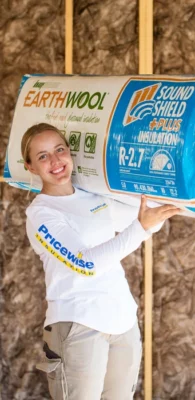
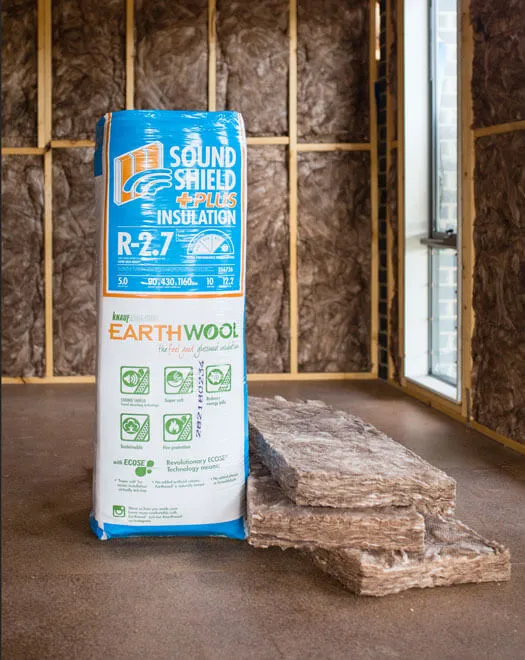
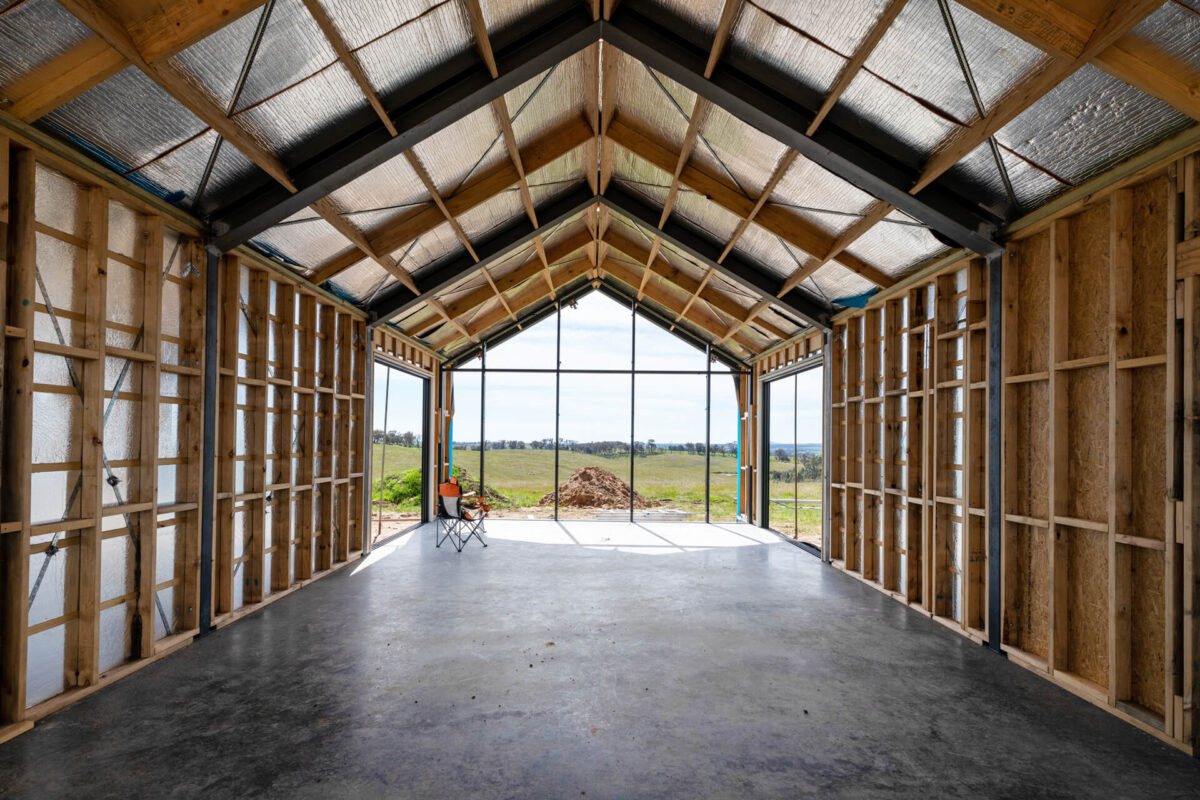
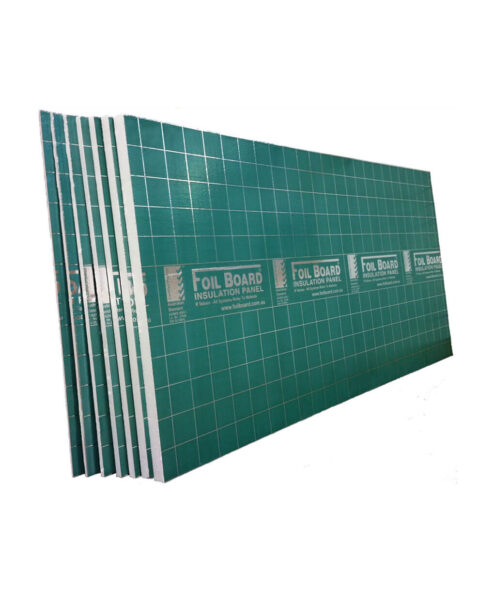
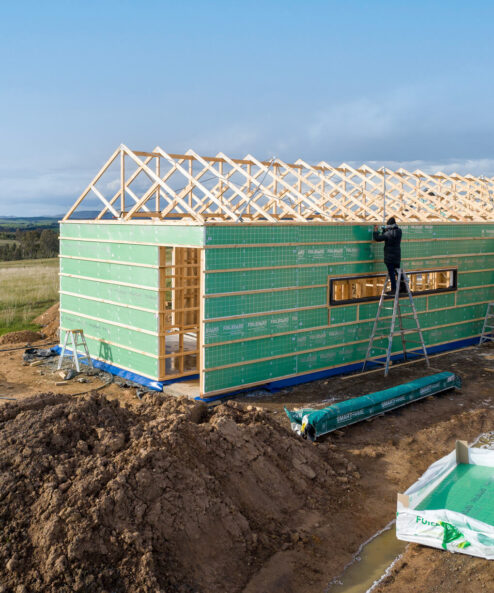
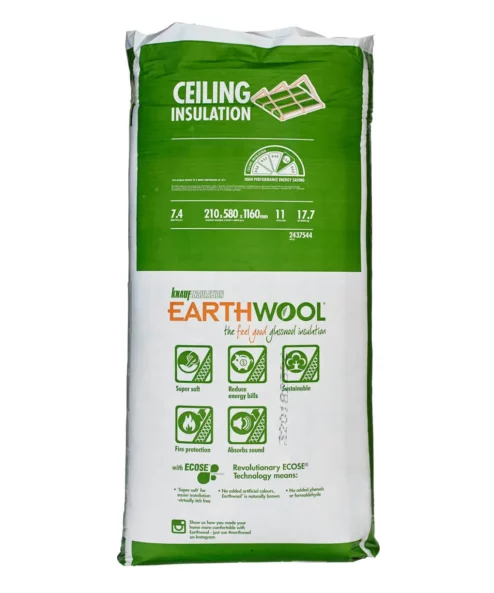
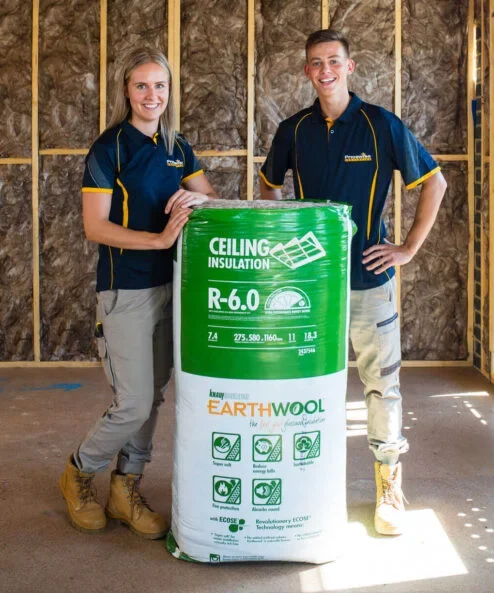
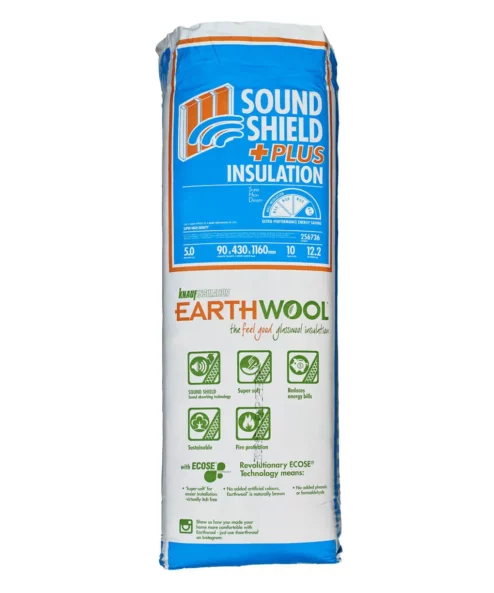
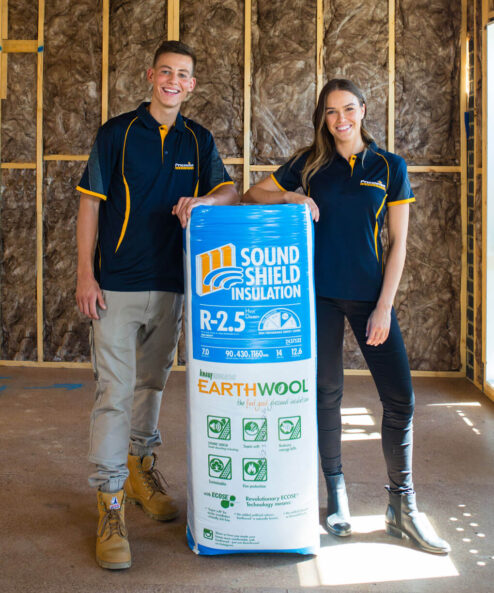
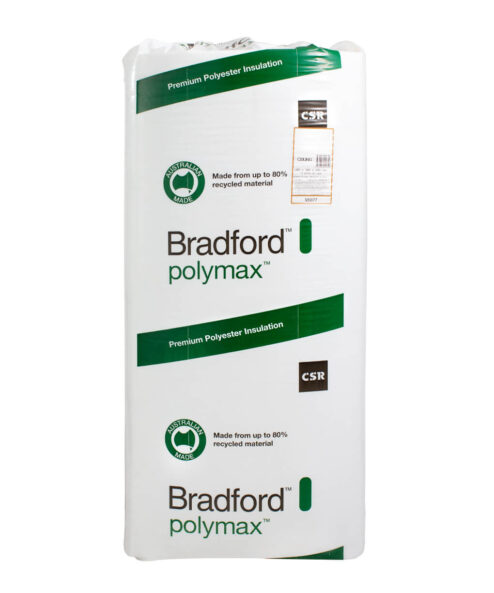
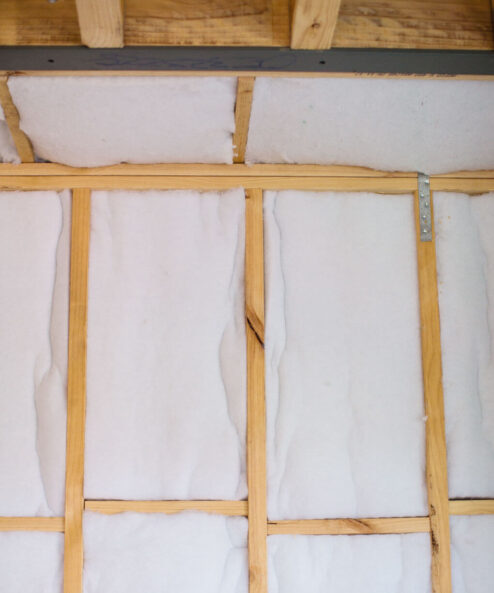
Install small shed Northside margate
Hi Barry,
Thanks for your comment!
Unfortunately, we don’t service Tasmania at this time. However, if you need advice on insulation products or installation methods, feel free to give us a call at 1300 729 639 – we’re happy to help!